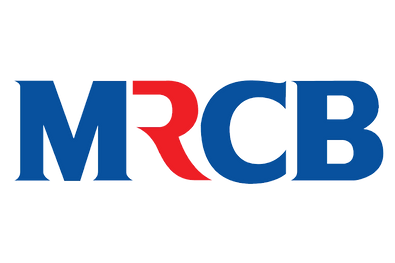ESG Consultancy Malaysia
Environmental Social and Governance Advisory, Reporting and Strategic Implementation
Understanding and Implementing ESG Strategies in Malaysia: For Sustainable Corporate Growth
The operations of businesses around the world have changed and so have the expectations from them. Committed corporations have recognized the fact that financial returns are not sufficient anymore. Corporates now must show commitment towards social, environmental and corporate governance. This is where ESG (Environmental, Social, and Governance) comes into play. In Malaysia, ESG is quickly growing in prominence, driven by changes in regulation, demand by investors, and a rising understanding of the need for responsible business practices.
As per a recent survey, 78% of Malaysian investors greatly consider ESG for investment purposes. It shows how companies are required to meet the demands of integrating ESG into their businesses.
Environmental Social and Governance (ESG) is no longer optional in today’s competitive business landscape. Investors, regulators, customers and employees expect organisations to demonstrate real ESG performance not only for compliance, but for long-term value creation, resilience and stakeholder trust.
At YHY Consultancy, we help Malaysian companies integrate ESG into their core strategy, set measurable goals, develop frameworks, measure performance and report effectively enabling you to meet stakeholder expectations and strengthen your market position.
Experienced
We have wealth of experience and expertise with over 10 years of Successful ISO Consultation Service
Professional
Our ESG Consultants and Trainers are well trained professional with Accredited ISO Certification.
Competitive Pricing
Our ESG Consultation and Training services are among the most cost effective solution in Malaysia.
ESG Consultancy, ESG Certification and ESG Reporting
We Cover an Array of ESG Consultation, Certification and Reporting Services in Malaysia
What is ESG and Why It Matters in Malaysia
ESG stands for Environmental, Social and Governance, a framework used to assess how organisations manage risks and opportunities beyond purely financial results. It covers:
Environmental
• Carbon and greenhouse gas emissions management
• Resource efficiency and waste reduction
• Water and energy management
• Environmental regulatory compliance
Social
• Fair labour standards and workplace safety
• Diversity, equity and inclusion
• Human rights and community engagement
• Supplier social compliance
Governance
• Board structure and responsibilities
• Ethics, transparency and anti corruption
• Risk management and internal controls
• Stakeholder engagement and reporting
ESG has become essential in Malaysia, where sustainability reporting is increasingly encouraged across sectors, and Bursa Malaysia has set mandatory sustainability disclosure requirements for listed companies. Integrating ESG aligns you with investor expectations, regulatory trends and global sustainability practices.
ESG Implementation Process
- Materiality Assessment: We identify the ESG issues that matter most to your business and stakeholders.
- Strategy Development: Create realistic ESG goals and implementation strategies linked to business outcomes.
- Data Systems and Tracking: Set up systems to measure environmental, social and governance performance.
- Internal Reporting & Improvement: Internal performance reviews and improvement cycles ensure readiness for external reporting.
- Sustainability Reporting: We support your organisation in publishing credible sustainability disclosures.

ESG Consultancy
ESG consultancy involves consulting firms helping businesses integrate ESG factors into their strategies. The services includes ESG strategy development, risk assessment, performance measurement, stakeholder engagement, reporting, and training. ESG consultancy is vital for companies aiming to align with sustainability goals and meet stakeholder expectations.

ESG Reporting
ESG reporting refers to the process of disclosing information on a company’s environmental, social, and governance performance to stakeholders, such as investors, customers, employees, and regulators. ESG reporting is voluntary in many jurisdictions but is increasingly becoming a standard practice as stakeholders seek more transparency and accountability from companies.

ESG Certification
ESG certification is voluntary and can be obtained from ESG certification frameworks, such as them MICG, Bursa Malaysia, SC, GRI and SRA. Achieving ESG certification can help companies demonstrate their commitment to sustainable and responsible business practices, enhance their reputation among stakeholders, and gain a competitive advantage in the market.
What is ESG Certification : A Quick Summary
Get Started
What is ESG and Why it is important to your business.
ESG stands for Environmental, Social, and Governance. It’s a framework used to evaluate a company’s sustainability and ethical impact. Think of it as a way to measure how well a company is doing in terms of its responsibilities beyond just making a profit.
About Us
At YHY Consultancy, No Client is Too Big or Small
Looking for a reliable ESG consultancy firm in Malaysia to help you implement ESG standards effectively and efficiently? Look no further than YHY Consultancy Sdn Bhd. Our expert team provides a full range of ISO consultancy, training, and audit services that can help take your organization to the next level.
esg CERTIFICATION OVERVIEW
Three Pillars of ESG Standards
Environmental: This pillar focuses on a company’s impact on the environment. This includes things like:
-
- Pollution: Reducing air and water pollution.
- Carbon Emissions: Minimizing greenhouse gas emissions and addressing climate change.
- Resource Management: Using resources efficiently and sustainably.
- Waste Management: Minimizing waste and promoting recycling.
Social: This pillar concerns a company’s social responsibilities and its relationships with people. This includes things like:
-
-
- Labor Standards: Ensuring fair wages, safe working conditions, and ethical treatment of employees.
- Human Rights: Respecting human rights throughout the company’s operations and supply chain.
- Community Engagement: Supporting local communities and contributing to their well-being.
- Diversity & Inclusion: Promoting a diverse and inclusive workforce.
-
Governance: This pillar focuses on a company’s leadership, ethics, and transparency. This includes things like:
-
- Corporate Governance: Ensuring effective and accountable leadership.
- Ethics: Upholding ethical standards and preventing corruption.
- Transparency: Being open and honest about the company’s operations and performance.
- Risk Management: Identifying and managing ESG-related risks.
What is ESG reporting?
Is ESG mandatory in Malaysia?
How long does ESG implementation take?
The timeline varies by company size, industry and maturity level, but most organisations see value within months with structured consulting support.
What standards should I report against?




Long Term Sustainability
By integrating ESG principles into their operations, businesses can ensure long-term sustainability by addressing key challenges such as climate change, social inequality, and governance issues.
Competitive Advantage
Employee Engagement
Access to Capital
Join Us
Benefits of Implementing ESG Standard & Certification
Implementing ISO 9001:2015, an internationally recognized standard for quality management systems, can bring numerous benefits to companies in Malaysia, including increasing customer satisfaction, improved efficiency and productivity, enhanced reputation and increasing market share for the company.
esg CERTIFICATION OVERVIEW
ESG Certification Standard in Malaysia Market 2026
The ESG Legal Framework in Malaysia
The ESG legal landscape in Malaysia is still evolving, but it’s becoming increasingly important for businesses to understand and comply with relevant regulations. Currently, the framework is somewhat fragmented, but growing in importance.The absence of a unified ESG law, similar to those in other jurisdictions, does not mean ESG is not regulated in Malaysia. It simply means that different aspects of ESG fall under various laws and guidelines.For publicly listed companies, Bursa Malaysia (the Malaysian stock exchange) plays a significant role in promoting ESG adoption through its Listing Requirements.
Bursa Malaysia's Role
- Bursa Malaysia mandates public companies to include a Sustainability Statement in their annual reports. This requirement is outlined in the Bursa Malaysia Listing Requirements.
- Main Market Companies: Are required to disclose their management of material economic, environmental, and social risks and opportunities.
- ACE Market Companies: Have similar, but less stringent, requirements. They are encouraged to disclose information on their sustainability practices.
- The Sustainability Statement should be balanced, comparable, and meaningful. Companies should refer to Bursa Malaysia’s Sustainability Reporting Guide to ensure compliance.
Key Legislations Relevant to ESG
- Environmental Quality Act 1974 (EQA): This is a cornerstone of environmental regulation in Malaysia. The EQA regulates the discharge of pollutants and emissions, requiring companies with significant environmental impacts to conduct environmental impact assessments (EIAs) before undertaking certain projects.
- Employment Act 1995: This Act sets out the minimum standards for employment in Malaysia, covering aspects such as wages, working hours, and termination of employment.
- Occupational Safety and Health Act 1994 (OSHA): Promotes a safe and healthy working environment for all industries in Malaysia.
- Companies Act 2016: Defines the legal framework for company governance, including directors’ duties and responsibilities.
- Personal Data Protection Act 2010 (PDPA): Governs the collection, use, and disclosure of personal data, ensuring data privacy and security.
- Anti-Corruption Laws: Including the Malaysian Anti-Corruption Commission Act 2009, are crucial for upholding ethical standards and preventing corruption in business operations.
Challenges on Adopting ESG Standard and Ways to Overcome It
Adopting ESG (Environmental, Social, and Governance) standards can present several challenges for businesses:
Complexity and Lack of Standardization: ESG standards vary widely, and there is a lack of standardized metrics and reporting frameworks, making it difficult for businesses to know which standards to follow and how to measure their performance consistently.
Data Availability and Quality: Collecting reliable data on ESG factors can be challenging, especially for smaller companies or those operating in regions with limited reporting requirements or data availability.
Costs and Resource Constraints: Implementing ESG standards often requires investment in new processes, systems, and personnel, which can be costly, particularly for small and medium-sized enterprises (SMEs) with limited resources.
Resistance to Change: Some businesses may resist adopting ESG standards due to concerns about the impact on profitability or a lack of understanding of the benefits of sustainable practices.
Stakeholder Engagement: Engaging with stakeholders, including investors, employees, customers, and communities, to understand their ESG expectations and concerns can be challenging and time-consuming.
Integration into Business Strategy: Integrating ESG considerations into business strategy and decision-making processes can be complex, particularly for companies with established practices and cultures.
Regulatory and Legal Compliance: Keeping up with evolving ESG regulations and ensuring compliance can be challenging, particularly for companies operating in multiple jurisdictions with different requirements.
Greenwashing and Reputation Risks: There is a risk that companies may engage in greenwashing—claiming to be more environmentally or socially responsible than they are—to enhance their reputation, which can lead to reputational damage if exposed.
Despite these challenges, adopting ESG standards can bring significant benefits, including improved risk management, cost savings, access to capital, and enhanced reputation. Addressing these challenges requires a commitment from businesses to embrace sustainability as a core value and integrate ESG considerations into their overall business strategy.
Contact Us
YHY CONSULTANCY SDN BHD is a ISO Consultant and ISO Certified trainer established since 2009 with 100% implementation success rate in Malaysia. We provide a wide range of ISO Standards Certification consultation ranging from ISO 9001, ISO 13485, HACCP, GMP, ISO 22000 and more.